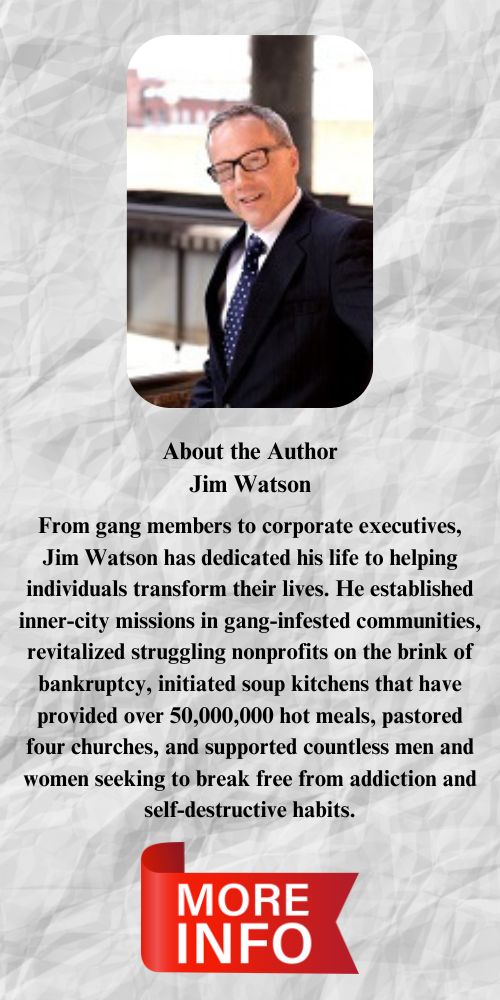
Train Yourself to be Godly

Train Yourself to be Godly
“exercise thyself rather unto godliness…”
I Timothy 4:7 (ESV)
Most men and women live undisciplined lives, especially addicts. A chaotic life produces turmoil in daily living, relationships, finances, and careers. Without discipline, you will not change your life or fulfill your ambitions. An undisciplined life is a dream-killer.
So many men and women wait until they have a serious problem before deciding to do something about it. We wait until we get a little plump around the middle before switching to a healthier diet. We wait until our kids get into trouble before we spend more time with them. We seek help for our marriage only when it is in danger of failing. We check into a rehab program after alcohol or drugs have destroyed our lives. The whole thought of discipline smacks of excessive regimentation and a lack of spontaneity in our lives.
REASONS FOR OUR DISLIKE OF DISCIPLINE
Our dislike for training has several root causes. For some of us, laziness is the culprit that gets in the way of our success. We are unwilling to do the hard work necessary to change the course of our lives and destiny. For others, the busyness of life stands in the way of providing structure in our daily routine. We believe our plate is too full to add anything else to it.
Even more common are those who have given up on the idea of change. Our past failures have discouraged us from believing personal transformation is possible. “What’s the use?” we say. “It’s impossible for me to change. I have always been this way, and this is how I will always be.” We cannot see the benefits of a disciplined lifestyle.
Having spent many years working with men and women with drug and alcohol addictions, I found that many of them seemed incapable of taking a long-term perspective in making decisions regarding their futures. They lived for the moment, oblivious to the enduring consequences of their actions. For them, today is the only day that matters. Perhaps that describes you.
Addiction may be only one of many things that trouble your life. You may struggle with anger, lust, spreading gossip, the need to criticize others, or a multitude of other unchristian behaviors.
Sometimes, the spiritual growth process is too tedious and painful, so you settle for a form of Christlikeness that reduces spiritual maturity to familiarity with the Bible and how many people you tell about the Gospel. People rarely respond to powerless messages.
Maybe you are looking for a quick fix that will produce instant results. You want to change today and overcome habits developed over a lifetime. You believe that if you just had the correct information, a straightforward and effortless formula, or even an exciting experience of the Holy Spirit, you could conquer any habit that causes harm.
Your limited vision for your life may explain your lack of progress. Instead of dreaming big and planning to live a life of impact, you have learned to settle for an unimportant life that hardly matters. An insignificant vision will not motivate you to make the necessary sacrifices to transform your life. Without sufficient motivation, you will not likely rise above your current circumstances.
In the world of sports, most successful athletes dream big. To accomplish their vision, they live highly disciplined lifestyles and sacrifice whatever is necessary to obtain their goals. They know they must do more than just read books written on their sport; a training plan followed by action is required to reach their full potential as an athlete.
Godliness is the Fruit of Discipline and the Work of the Holy Spirit
Like training for an athletic event, you must train yourself to be godly. Godliness does not happen by accident. It results from diligent and persistent effort, yet it is still a work of the Holy Spirit in your life. How can both be true at the same time? In this way, once you understand the relationship between training yourself to be godly and the Holy Spirit changing you from within, you will be on your way to fulfilling God’s destiny for your life.
Godliness Training Helps You Defeat Ungodliness
If godliness is the work of the Holy Spirit, why is it necessary to train and put so much effort into becoming godly? Why not just sit still and let God make the changes? Unfortunately, “letting go and letting God” is an empty cliché without any connection to the real world. You cannot just let go and let God.
Part of the problem is that you spent a lifetime building a wall that protects you from any outside intrusion that may challenge the domain of your deeply held beliefs. You are afraid of surrender and unable to trust God in many areas of your life. Your wall of protection is both high and wide.
This wall of protection is the total of your life experiences. When you are hurt, you protect yourself from being wounded again by adding another brick to your wall. If a spouse or romantic friend cheats on you, if your employer fires you, if someone ridicules you, or if you become the object of gossip, you increase the height of your wall to prevent those actions from doing damage again. You also add bricks to the wall by your actions or continued practice of sin. All of these behaviors harden your heart and increase the wall’s strength.
As mentioned in another writing, our first mission was in Bridgeport, Connecticut. My first year in Bridgeport was spent preaching and feeding folks in some of the city’s most dangerous neighborhoods and drug-infested parks. My wife and I prepared meals in borrowed kitchens and served them from our old station wagon. Before feeding, Tammy would sing a Gospel song, and I would preach a short evangelistic message.
Hundreds of people—gang members, prostitutes, and children— came to our street feedings. We were emotionally overwhelmed by the sights and sounds of life and death in the inner city. We saw children playing on playgrounds covered with broken wine bottles and empty syringes, drug dealers selling crack and heroin, addicts with needle marks all over their arms, and witnessed drive-by shootings.
Towards the end of our first year in Bridgeport, a couple that owned a rooming house in the heart of our field of ministry offered to lease a building to us that would increase the number of people we could help. The building owners failed to mention that a street gang used their facility for drug dealing and prostitution. The owners were desperate and afraid. Complicating the situation, the week before we moved into the property, another gang tried to wrestle control of the building from the first gang. They machine-gunned the building, barely missing one of the female tenants. Although they shot up the place, they failed to oust the gang in control.
It did not take me long to recognize that if I wanted to use the building for ministry, it would be my responsibility to evict the gang. I did not involve the police, deciding that using outside help would ultimately alienate those I wanted to reach with the Gospel. The prospect of ejecting them from the building was very frightening to me.
The week before my move into the building, I visited the neighborhood to get a feel for its environment. From my vehicle, I watched as drug dealers swapped drugs for dollars, passing them into the hands of addicts eager for a fix and prostitutes yelling at passing cars like hawkers outside a pawnshop.
After a few minutes, one of the prostitutes approached my car. She asked if I was a cop. I explained that I was a pastor, that I had rented their building, and was planning to open a mission in it the following Sunday. She returned to the building.
A few minutes later, one of the drug dealers shouted at me from the other side of the street, warning me that they would kill me if I attempted to enter the building. I believed him.
In the face of their death threats, my courage evaporated. Instead of embracing the possibility of death as the ultimate expression of being a Christ-follower, I just wanted to run. I felt cowardly, and the faith in Christ that should have prepared me for this battle seemed to fail me. Christian friends tried to comfort me with the assurance that God would not let anything harmful happen to me, but their words failed to reassure me. Anyone who has read the Bible knows that Christians can die doing God’s will; it happens all the time.
My struggle continued for days. I had taken for granted experiences that came into sharp focus—my love for my wife, watching my children grow into adults, flowers blooming, birds singing, hamburgers, and French fries. I cried out to God for help.
At this crisis point, I remembered the words Jim Elliot wrote in his journal before he set out as a missionary to a tribe of headhunters in Ecuador: “He is no fool, who gives what he cannot keep, to gain what he cannot lose.” The headhunters he hoped to win to Christ speared Jim and his companions to death.
As I reflected on Jim’s words and faith, my fear, though still present, surrendered to a higher calling. I realized that the loss of my life for the sake of Christ would become the entryway that led me to a place where pain ceased to exist, tears dried up, sickness was subdued, and hope found fulfillment. Feeling somewhat embarrassed by my fear, I decided that trading my life for a future with God was a winning proposition and the right course of action. I made up my mind to go for it.
After enduring an emotionally tumultuous week, the day for taking possession of the building arrived. Before leaving the house, I held my wife for an exceptionally long time. I wondered if I would see her again on this side of the grave.
I arrived at the building, unlocked the front door, and entered the main room. Gang members and prostitutes were everywhere. Summoning all my courage, I announced that the building was now the property of Bridgeport Rescue Mission. And they had to leave. They left! At least, it seemed that way for the moment.
Several gang members barricaded themselves in rooms in the back of the building. Strangely, my surrender to death now infused me with an abnormal amount of courage. I demanded that they open the door and leave the building. They refused. Like a reincarnation of John Wayne, I kicked in the door. They escaped out the window.
GOD WILL NOT ENTER A CLOSED-DOOR
You and I might kick open a door preventing us from obtaining something we want. We do not want to take “No” for an answer. Or, we might intrude into a place uninvited. Fortunately, God is not like us. He will not walk through the door unless you invite him to enter your life.
God will not work in an unsurrendered area of your life. By clinging to ownership of specific areas of your life, outlooks, and individual plans or dreams, God will not, because of his very nature, use his power to override your will. That is why you still find it difficult to forgive, defeat addiction, overcome your temper, or exhibit the fruit of the Spirit in your daily living.
Galatians 5:22-24 (KJV) says,
“But the fruit of the Spirit is love, joy, peace, longsuffering, gentleness, goodness, faith, meekness, temperance: against such there is no law. And they that are Christ’s have crucified the flesh with the affections and lusts.”
The precondition for the Holy Spirit to produce fruit in your life is the death of the sinful nature. If you lack significant life change, it is because the sinful nature still reigns in you. You can dispute it, deny it, or explain it away. The authentic test of your surrender is the kind of fruit that it produces in your life. The Holy Spirit’s actions in your life produce godliness. In contrast, the works of the sinful nature produce destructive and hateful fruit.
PUTTING TO DEATH THE SINFUL NATURE
How do you put to death the sinful nature? Do you kill it by sheer willpower, a dogged determination not to let your baser instincts rule your life? I can tell you from personal experience that willpower has been thoroughly tested and found wanting. When confronted with unmanageable pressure, even the strongest of wills will succumb.
So often, people who have disorders, such as overeating, drug and alcohol addiction, etc., are viewed as weak-willed and unable to lead a balanced life. Nothing could be further from the truth. After spending many years working with addicts, I have concluded that they are some of the most strong-willed individuals you will ever meet. Their strength of will can withstand almost every effort to break the strongholds of sin that were the original causes of their addiction, and their stubbornness blocks out any help that might set them free.
No, you cannot put to death your sinful nature by just wanting it. If you count on determination and personal strength to overcome your sinful nature, you will eventually conclude that the fruit of the Spirit and a changed life are impossible for you.
You might decide to do a word study on the exact meaning of each component of the fruit of the Spirit because you believe that possessing an abundance of information on a topic will change your life. Many people believe that education is the cure for all the ills of society, including our personal lives, which explains why the shelves of the local bookstores are filled with self-help books.
Without diminishing the virtues of learning or blessing ignorance, I believe that even extensive knowledge of the Bible does not necessarily defeat the works of the flesh in a person’s life. Circumstances and pain trump knowledge and understanding, causing us to live beneath our education and learning.
GODLINESS TRAINING IS NOT A HOMEWORK ASSIGNMENT
That brings us full circle to the point of this chapter. How can you train yourself to be godly? Godliness training is a daily discipline of Bible meditation, reading, and prayer. It also includes such disciplines as fasting, listening to sermons, godly relationships, and church attendance. “Nothing new,” you say. After all, many folks read the Bible daily, attend church, pray, and practice other such disciplines. Despite all their efforts, unfortunately, the result of all this work is not transformation, but instead, first place in a Bible trivia contest.
Many people’s biggest problem with Bible reading and practicing a holy life is their view of reading and devotions. We tend to treat these disciplines as homework assignments that we must complete to satisfy the requirements of a school class. Bible reading becomes an end in and of itself instead of a means to deepen a person’s relationship with God.
Instead of treating devotions as an assignment or reading the Bible as a daily chore, your daily devotions should be considered sacred moments of worship, a special time of intimacy with God. You must have a plan and a daily training schedule that keeps you on track, which helps you continually surrender the fragmented pieces of your life to Christ. As you yield the pieces of your life, you allow the Holy Spirit to continue producing the fruit only he can create.
Too many people want to change the consequences of their actions without changing their behavior. To attack the source means discovering something about themselves they wish to keep hidden, and hardly anyone is willing to believe that he is the source of his character flaws. Blame is more comfortable than change.
In I Timothy 4:7b, the Apostle Paul encouraged Timothy to train himself to be godly. He compared it to training for an athletic event. Anyone who has trained for a sport or skill knows that greatness, even just competency, takes years to accomplish. In much the same way as excellence in sports, Godliness does not just happen overnight. It is the result of years of training and preparation.
TRAINING BATTERS THE BARRIERS THAT BLOCK THE WORK OF THE HOLY SPIRIT
The objective of godliness training is to tear down the wall that prevents you from allowing the Holy Spirit to work in your life. The process of becoming a new creature in Christ begins with the transformation and surrender of your mind, that is, the way you think. In Romans 12:1-2 (KJV), we read,
“I beseech you therefore, brethren, by the mercies of God, that ye present your bodies a living sacrifice, holy, acceptable unto God, which is your reasonable service. And be not conformed to this world: but be ye transformed by the renewing of your mind, that ye may prove what is that good, and acceptable, and perfect, will of God”
Notice that a transformed mind follows a surrendered life. When the Bible talks about offering your body as a living sacrifice, it essentially means surrendering your life and submitting your hopes, dreams, plans, and will to the Lordship of Christ. However, because you are a living sacrifice, you find that staying surrendered is almost impossible.
One of the results of being human is that you become comfortable living a fragmented life–a jumble of conflicting personalities that express themselves as circumstances change or evolve. In the morning, you put on your family personality and get your kids ready for school. On the way to work, you wear your commuter costume, honk at strangers, break the speed-limit laws, and lose your composure and patience because of traffic jams. When you arrive at work, you put on your work personality, climb the ladder of success, play office or factory floor politics, and gossip about your co-workers. You also wear church identities, social identities, relaxation and entertainment identities, student identities, and relationship identities… the list is almost endless. You must surrender all these conflicting personalities to Christ.
Behaviors not surrendered to Christ create internal conflict that prevents lasting change from taking place. As previously stated, stubborn control of specific areas of your life effectively blocks the work of the Holy Spirit. Unfortunately, many habits and flaws are so deeply entrenched, so much a part of the essence of your personality, that you cannot surrender them to God. Godliness training lowers the barriers of resistance erected to protect yourself from the knowledge, exposing the truth about who you are. It opens the door for the Holy Spirit, allowing him to remove the hidden things and work in your life to produce Christ-like fruit.
Surrender is more than mouthing words and phrases, more than kneeling at an altar, more than tears, and even more than a confession. Sometimes, it takes years for you to surrender rule over parts of your domain. Often, surrender is like the slow dripping of a faucet, not very perceptible at first, but over time, it overflows the bucket and saturates everything within range.
Begin the change process by setting aside a predetermined daily time to build your relationship with God. This day-to-day commitment to spend time with him will change your life.




